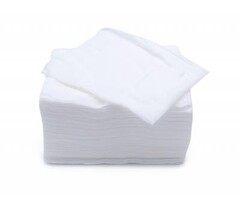
Hygiene & Disinfection
Hygiene & disinfection
Good hygiene is crucial for good general health and wellbeing , as it helps reduce the risk of illness, disease and medical conditions caused by the effects of poor hygiene. When a person does not maintain good hygiene, his body can collect bacteria that contribute to diseases such as head lice and mange. Poor hygiene can also cause parasites to grow and multiply on the skin and in the body, causing parasitic diseases .
Good personal hygiene habits include brushing your teeth, bathing or showering and wearing clean clothes. By performing these habits daily or as often as necessary, good hygiene and cleanliness is achieved and maintained. Wash your body and hair often to remove bacteria and dead skin cells. Brush your teeth after every meal, or at least twice a day. Regular flossing and brushing will prevent the build-up of bacteria in the mouth that increases the risk of gum disease.
Wash your hands every time before eating or preparing food and after coming into contact with bacteria and viruses - in toilets and after coughing or sneezing and taking out the trash. Trim your fingernails and toenails regularly and take measures to ensure that your feet are clean and dry at all times.
Good hygiene can help you stay healthy and offers numerous positive benefits for your physical, emotional and psychological health.
Hygiene & disinfection
Good hygiene is crucial for good general health and wellbeing , as it helps reduce the risk of illness, disease and medical conditions caused by the effects of poor hygiene. When a person does not maintain good hygiene, his body can collect bacteria that contribute to diseases such as head lice and mange. Poor hygiene can also cause parasites to grow and multiply on the skin and in the body, causing parasitic diseases .
Good personal hygiene habits include brushing your teeth, bathing or showering and wearing clean clothes. By performing these habits daily or as often as necessary, good hygiene and cleanliness is achieved and maintained. Wash your body and hair often to remove bacteria and dead skin cells. Brush your teeth after every meal, or at least twice a day. Regular flossing and brushing will prevent the build-up of bacteria in the mouth that increases the risk of gum disease.
Wash your hands every time before eating or preparing food and after coming into contact with bacteria and viruses - in toilets and after coughing or sneezing and taking out the trash. Trim your fingernails and toenails regularly and take measures to ensure that your feet are clean and dry at all times.
Good hygiene can help you stay healthy and offers numerous positive benefits for your physical, emotional and psychological health.
Hygiene & disinfection
Good hygiene is crucial for good general health and wellbeing , as it helps reduce the risk of illness, disease and medical conditions caused by the effects of poor hygiene. When a person does not maintain good hygiene, his body can collect bacteria that contribute to diseases such as head lice and mange. Poor hygiene can also cause parasites to grow and multiply on the skin and in the body, causing parasitic diseases .
Good personal hygiene habits include brushing your teeth, bathing or showering and wearing clean clothes. By performing these habits daily or as often as necessary, good hygiene and cleanliness is achieved and maintained. Wash your body and hair often to remove bacteria and dead skin cells. Brush your teeth after every meal, or at least twice a day. Regular flossing and brushing will prevent the build-up of bacteria in the mouth that increases the risk of gum disease.
Wash your hands every time before eating or preparing food and after coming into contact with bacteria and viruses - in toilets and after coughing or sneezing and taking out the trash. Trim your fingernails and toenails regularly and take measures to ensure that your feet are clean and dry at all times.
Good hygiene can help you stay healthy and offers numerous positive benefits for your physical, emotional and psychological health.





